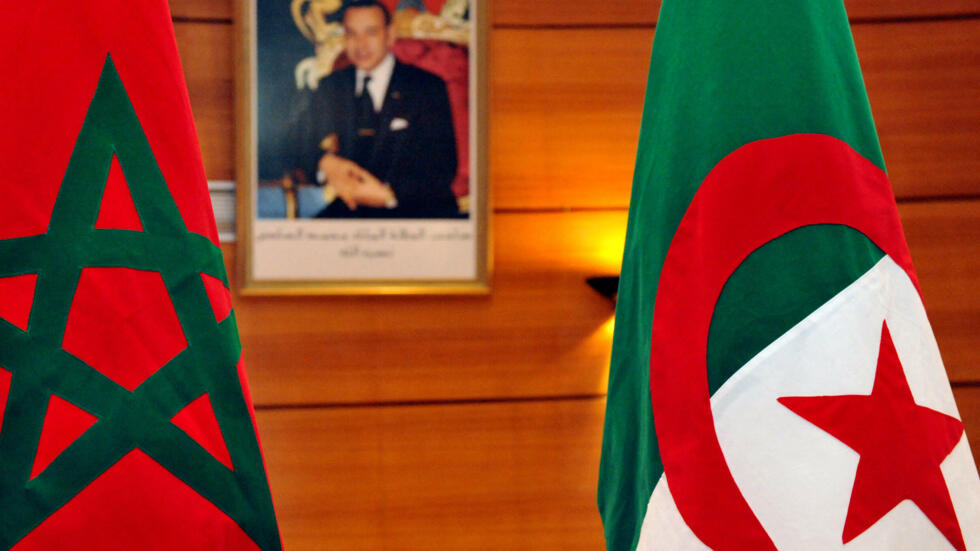The rivalry, marked by a closure of borders since 1994, disputes over Western Sahara, and ongoing economic and geopolitical competition, often spills over into various aspects of bilateral relations, including sports.
Football Match Unveils Diplomatic Dispute
During a recent Africa Cup of Nations (AFCON) 2025 qualifier match between Algeria and Equatorial Guinea, an unexpected diplomatic incident occurred.
Algerian television decided to obscure the scoreboard, whose colors—red and green—were reminiscent of the Moroccan flag.
The move, which might have gone unnoticed by many international viewers, was keenly observed and analyzed by those familiar with the Maghreb relations.
This seemingly minor action carries significant weight in the context of the strained relations between the two nations.
It highlights a deliberate effort to erase any indirect references to Morocco, even in a sports context meant to transcend political disputes.
This incident underscores the extent of the diplomatic rupture between Algiers and Rabat, where even symbols can become battlegrounds.
Ongoing Diplomatic and Sports Tensions
This incident is part of a broader pattern of diplomatic and sports-related spats between Morocco and Algeria. Previous conflicts have included the cancellation of friendly matches over disputes related to team uniforms.
Such recurring tensions demonstrate how political strains permeate all aspects of bilateral relations, even those intended to promote mutual understanding and exchange.
In response to the scoreboard controversy, some Moroccans have called for symbolic retaliatory measures, such as prominently displaying the Moroccan map at venues hosting the Algerian team during AFCON 2025, should Algeria qualify.
This escalation of symbolic provocations reveals how deeply entrenched the conflict has become, fueling a cycle of reactions and counter-reactions that only exacerbates existing tensions.
Challenges and Opportunities for Reconciliation
The scoreboard incident, though seemingly trivial, raises broader questions about the future of Morocco-Algeria relations.
It highlights the difficulty of overcoming decades of mistrust and hostility, even in ostensibly neutral arenas like sports.
The prospect of normalizing relations seems increasingly distant as such micro-incidents continue to amplify tensions on both sides.
However, the upcoming AFCON 2025 in Morocco could present a unique opportunity to bridge these divides.
The continental sporting event has the potential to serve as a catalyst for constructive dialogue, provided both nations demonstrate political will.
Algeria’s potential participation in the tournament on Moroccan soil would be a crucial test of the two countries’ ability to set aside their differences in the spirit of sport and African unity.




